Interviews
11752
0
0
“To be able to make a career in the field of IP, one should be creative or at least understand certain facets or methods of its expression. You should have the zeal to learn more and more everyday.” – Zainab Syed, Founder of Zainab Syed & Associates.
This interview was taken by SuperLawyer Team
Posted on March 25, 2025
This interview has been published by Anshi Mudgal and The SuperLawyer Team
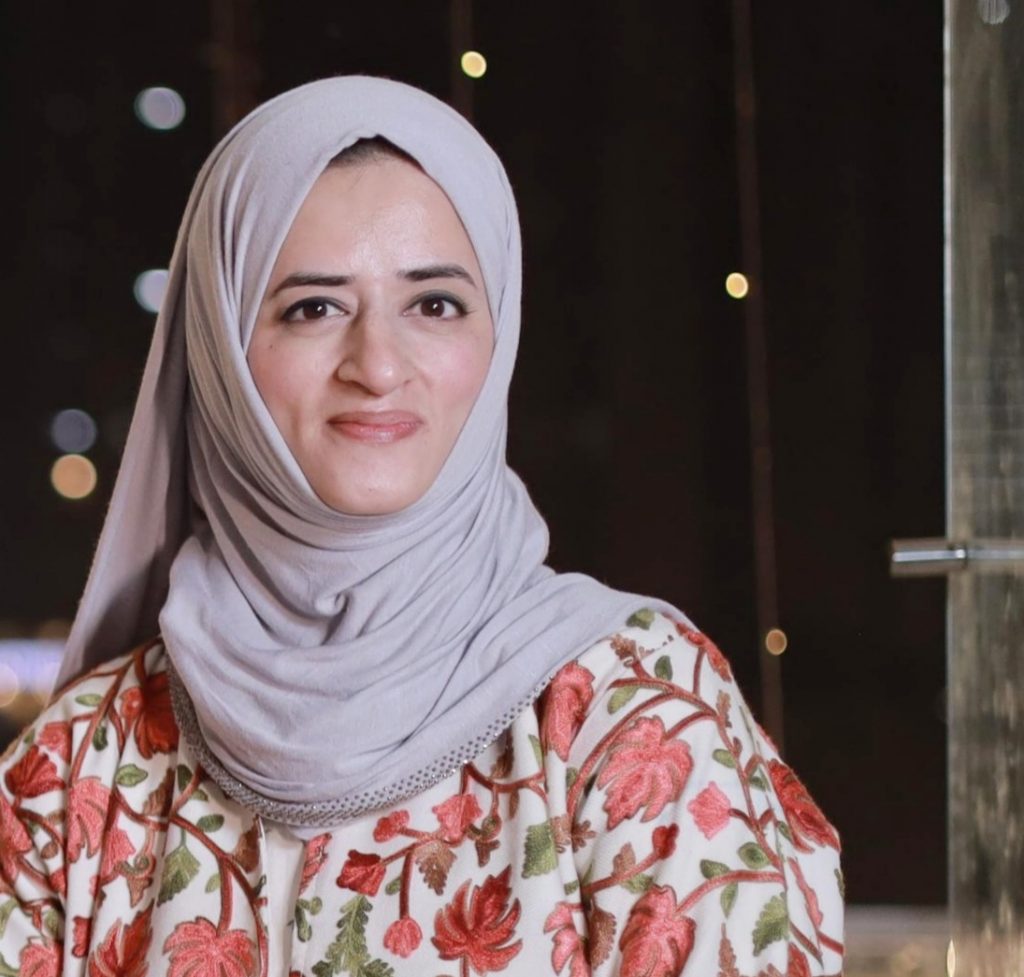
Maam, you have an impressive background, having completed your schooling in Kuwait and your law degree in Kashmir. Can you share some experiences from your early years that inspired you to pursue a career in law? What aspects of the field motivated you to become a lawyer?
Thank you. Well, from the very beginning, I have been quite principled and straight forward, advocating for whatever I believed to be the right thing. I was also elected as the school head girl, which made me quite responsible and vocal at the same time. My family is my support system, my parents instilled in me and my siblings a good work ethic and the importance of hard work and dedication. So, it was quite natural for me to choose this as a profession. I also landed myself a job with Amnesty International, soon after I gave my class 12th CBSE ( gulf) board exams . The job was at the Indian Embassy of Kuwait, wherein me and my team were helping with sending back Expats to India, who had been forcibly detained in the country with no documents in their possession. We helped so many helpless trapped Indians during that time. This is when I saw the real world, the injustice and helpless people looking for hope in us, being able to help these people made me realise that this is what I want to do in life.
I am a very empathetic human being, at times it does have a negative impact on my life or my decisions, but I think that is how I was raised and I’m proud of it and always will be. Everything about this field motivates you to become a lawyer, however, if I have to name some of the aspects, they would be as under:
- It’s a mental marathon that offers endless opportunities for problem-solving and critical thinking.
- Lawyers often find themselves at the forefront of societal change, advocating for individuals and communities.
- Lawyers stand as the principal architects of legal frameworks that safeguard civil liberties and shield the marginalized.
- Through their steadfast commitment to furthering social equity, provision of pro bono services, and facilitation of access to justice, lawyers emerge as pivotal agents in fostering equity and parity.
Early in your career, you worked at the High Court of Jammu and Kashmir, handling cases related to service matters, property disputes, family issues, and more. What are some key experiences from that time that shaped your legal understanding and laid the foundation for your practice?
After completing my law degree from Kashmir, and getting my license to practice, I decided to join the High Court of Jammu & Kashmir under the guidance of a very renowned and senior Advocate Mr. Syed Manzoor Hussain, who has an expertise of over 40 years now. Working with him, I learnt so many aspects of law which I had only read about. The whole experience of working with him in matters related to Service, property, defamation, Matrimony etc helped shape my career in the initial days. I remember the first time I appeared in Court, I got a favourable order in our matter, and the Hon’ble Justice at that time, commended me for my boldness and confidence, which increased my morale ten times more than what I had walked in with. Working at the High Court with my Senior, taught me that not all days will be in your favour, some may be against you, and it is then that your caliber and patience is tested. I remember working with my senior and assisting him in a service matter wherein even after having worked for more than 20-25 years in the Sericulture Dept of Jammu & Kashmir, the employees were not regularised by the govt, which should have been done, soon after they had finished 7 years of service, and after citing numerous judgements, submitting ample evidence, we finally managed to get them regularised. There were other matters also, like property disputes, salaries being withheld and unlawful terminations that we were able to get relief granted for our Clients. However, it won’t be fair to deny having any bad experiences, and those bad ones teach you to be more particular about your choices, and show you your hidden potential.
After joining SS Rana as a Senior Trademark Attorney and handling tasks like trademark filing, prosecution, and responding to examination reports, how did your experience in Intellectual Property Law compare to your previous work in the court? How did the work culture differ?
I shifted to Delhi after the 2013 floods in Kashmir that crippled life there, everything from records to documents were destroyed. It was then that Mr. Senior, who had seen the amount of hard work and dedication I had put in those 2 years, suggested that I move to Delhi as things would take quite some time to get normalized back there. It was definitely a very tough decision to move to Delhi and start afresh, but like they say “Accept what is, let go of what was, and have faith in what will be” , and that is what I did.
I joined S.S.Rana & Associates as a Junior Associate Advocate. This was an IPR law firm and I had no experience in this field, and IPR had been my favourite subject back in the University. I was lucky enough to be working under Mr. Vikrant Rana ( Managing Partner) in the Trade Marks Department. He believed that we need to partner with our clients, make their concerns our own, understand their businesses, and proactively get out in front of their problems without actually getting out in front of them. I believe that the biggest achievement in my career and what boosted my confidence is when your ideas or suggestions are taken positively and also implemented by Senior Lawyers or whom you work under. Under the guidance of Mr. Vikrant Rana I became a pro in Trademark matters, as I already had a flair for writing, and an eye for detail my examination report replies became popular among the team, Within a short span of time, I was training juniors in Trademark Department, handling complex cases and giving legal suggestions for IPR protection not just to National but international Clients as well.
I guess it was my honesty and dedication that always made me visible and stand out in the crowd. I had never imagined that Intellectual Property Rights were this vast and interesting, I guess the subject only teaches you 10% of what the law actually is. The work culture differed in this way that instead of having 1 senior to report to at the High Court, here I had the opportunity to learn from everyone, my knowledge was not restricted to the belief and ideas of one individual but it was open to accepting new things from so many different skilled and intelligent minds. Also of course, as we didn’t directly deal with clients on a daily basis unlike my previous workplace, this helped with the stress of client dealing.
On a lighter note, I remember when I was at the High Court, there was this very old Client of ours, almost 70-75 years of age , he would come to Court almost every other day, even if his matter would have been listed after 3-4 months, he visited every week without fail, asking about the status of his property dispute matter. When asked why are you here every week, he replied “I enjoy seeing you all work like this, I never had to work this hard in my entire life, I guess I was lucky, and to be honest, I don’t actually have anything more important to do”, I am sure, as I write this interview, he must be sitting in one of the courtrooms at Srinagar.
Following your tenure at a law firm, you transitioned to working as IPR counsel for several companies, managing their IP portfolios and providing legal advisory. What motivated this shift, and how did you navigate the complexities of this role?
I quit my job after the pandemic hit us, and took the decision of moving back to Kashmir, as we all know how serious it had gone back then, having lost a few loved ones back home, I realized that i had to be where my family is, as my family means the world to me. So it wouldn’t be wrong to say that all Natural Calamities happening in my life, brought with them a new hope and a new beginning for me. As I had already learnt the art of managing clients and their brands, it didn’t take me much time to make a Client base of my own, in my own home town. To be honest, these brands I worked for, all belong to Kashmir, and it was I who had approached them and introduced the concept of IPR protection and the importance of IPR in their business, that is how I got to work with them.
This role did indeed bring with it many issues or complexities, as Intellectual Property Rights were not very popular or known to the people in my home town, and even though we have way too much IP out there to protect, we had issues, issues like business owners using identical names for their business and wanting to protect their brand, or business owners not wanting to take legal action against parties infringing their IP. For such issues, we started educating the business owners about the importance of IPR and the benefits of protecting their IP.
What led you to establish your own practice? What were the challenges you faced in the initial stages, and how did you overcome them? What continues to motivate you in your practice today?
When I was working with my previous law firm, it would worry me so much that out of all those queries coming in about IP on a daily basis, I never came across any query coming from Kashmir. I don’t know why, but people have the misconception about Kashmir being a conflict zone, hence no one there does anything or everyone is living in fear, they have no life of their own. As I knew the real Kashmir, I wondered why no one there was coming forward to protect their brands or even enquiring about it.
This led to establishing my own law firm Zainab Syed & Associates, which was the first ever IPR law firm in Kashmir. Challenges like I mentioned before were the little of half knowledge about Intellectual Property Rights. The initial year indeed was a very tough one, where converting any query was like winning the Olympic gold medal, as people didn’t want to spend money on something they didn’t feel was necessary to protect, also, there were cases where someone had taken money from them for filing their trademark and they had never reverted after the money was transferred or cases where applications were filed by third party websites ( names not taken) who file applications in bulk without application of mind or a proper search or opinion, which lead to refusal of such marks.
I am a very competitive person, and the thing is that I only compete with myself. I believe that in this race in life, you run alone, it should never be about how many people went ahead of you, it should always be about what you have to do to finish the race. That is how I was able to face these challenges at work, I never took up matters that I knew had no chances of success, I didn’t think about the number of applications I was filing, what mattered to me was how many applications I could get registered. I was very patient with Client’s who didn’t quite understand why and how of IP, I never gave up on any Client until I would make them protect their brand by filing applications, I was persistent in this goal to protect more and more brands for my home town , or at least make them aware about Brand Protection.
Looking back how far I have come in this field and in expanding my practice, I am proud to say that I started from scratch and today I not only have Clients from the State of Jammu & Kashmir but from all across India and Abroad as well. Also the biggest motivation has been the success rate of our applications, and the flow of work we get from recommendations from our existing clients. Although I don’t let success get to my head or failure get to my heart, I guess that’s what learning is all about.
What has been one of the most challenging IP infringement cases you’ve handled to date, and how did you approach its complexities?
I wouldn’t be able to put them on a scale of 1 to 10, as all IP infringement cases are mostly complex and very challenging. One of our clients had received an infringement notice from the U.S for a name used in their café. They were asked to shut down the café and remove all use of the mark, however, our Client was the registered proprietor of the mark and the opposite party neither had a trademark application for the said name either in India or in their home country, and after almost a year of negotiations and emails and meetings we were able to convince them that the said Intellectual property solely belonged to our Client and there was no way that they could stop him from using the said brand name.
Also there was a matter where our Client had been using their family business name since almost 40 years and they had a registration that had expired and not renewed due to inadvertence of the previous lawyer, a third party had now taken advantage of the said thing and applied for the said trademark and started using the said name. We filed a fresh application in the name of our Client, filed opposition against the opposite party’s application and sent them a seize and desist notice. The Opposite party gave us an undertaking that they would never file this mark in future or even file a slightly similar mark in the future and also abandoned their trademark application and changed their business name to something else.
So I believe that overpreparation is the key to success, you should always be over prepared with facts and you should know your Client, and know about your Client, sometimes, your own Client does not have the right facts, so you always need to do your side of research and homework, so its only when you are convinced, you will be able to convince the opposite party.
As an IPR consultant and attorney for PHDCCI in Jammu & Kashmir and Ladakh, how has your role contributed to the promotion of Indian industry, trade, and entrepreneurship through intellectual property rights?
Our Law firm was appointed as their IPR Attorney and Consultant a few months back, and it is indeed an honour to work with this establishment that has changed millions of lives with their constant support and guidance. In these few months, boosting research and development, intellectual property rights (IPR) have contributed significantly to India’s economy. In fact, IPR and economic growth go hand-in-hand as intellectual property rights are essentially designed to aid innovators and reward innovation, This is where IPR comes in. With a patent in hand, innovators can issue licenses for mass production, which directly contributes to the economy. In this regard, we have been able to file 19 patents for PHDCCI and almost 70 Trademark Applications till date. We have also organised various seminars and visited various Universities of Kashmir where we have encouraged young minds and innovators to get their works Patented and protect their IP Rights. Further, we are also working on increasing the number of GI’s filed from the State of Jammu & Kashmir as there is tremendous scope of obtaining a GI registration here in the State.
With continuous support from the president of PHDCCI Jammu & Kashmir and Ladakh Mr. Vicky Shaw Sir, who is a visionary and a great man, we have been able to achieve the goal we had set for Zainab Syed & Associates, i.e. educating the masses with the need and importance of Protection of Intellectual Property Rights.
What advice would you give to young aspirants interested in pursuing a career in IPR law? How can they start early and excel in this field? Are there any specific resources you would recommend for those looking to deepen their knowledge?
To be able to make a career in this line, one should be creative or at least understand certain facets or methods of its expression. You should have the zeal to learn more and more everyday. This field broadly covers technically complex yet fascinating projects, which invariably require an informed knowledge of trends or developments in line with their type. So, in short, along with enthusiasm, one should have an eye for detail. I would advise them to first start with internships at IPR law firms only and not law firms that have IPR as part of their work. This will enhance their skills and keep them focused on IPR itself, not shifting from one thing to another. The other thing I would advise them would be to never give up on their dreams irrespective of how many times they fail or make mistakes, as one only learns from mistakes. To excel in this field, I would suggest some important points to remember:
- Before filing a Client’s trademark, always conduct a search on your end, not just in their respective class but in class 35 as well, as this would give you a broader idea.
- Never rely on the statement “It is a coined term we have not copied the same from anywhere” always do an internet search on if the word means anything or has been taken from an already existing name outside the Country.
- No similar or identical marks found on the records of the Trade Marks Registry does not always mean you are good to go, it can also mean that the said mark could not have been registered as it is non-distinctive or descriptive or is prohibited under the Trade Marks Act/Rules.
- Always encourage clients to file applications claiming use of the mark if they are already in business as this gives them prior rights over their mark.
- Always file applications in the correct class.
- If a registered mark is cited in your Client’s application, always check if their application had an examination report and how did they reply to the marks cited against them, as this can be used in your reply as submission.
- Never differentiate the marks in your reply if you intend to oppose the cited mark at a later stage.
- Always encourage your Clients to change their brand names if they are at the initial stage of their business and have not yet used the name anywhere, and have come to you for suggestions in filing the trademark application, and you see a mark that is either similar or identical to their brand.
- Always introduce the concept of negotiation to clients or co- existence with the opposite party, where you know that there is a scope of co-existence or negotiation and it is not a straight case of infringement or malice.
- Be up to date with recent judgements and case laws on IPR and any amendments in the law. Always note down case laws and use them in your replies as and when necessary.
Also, I would suggest that they visit the WIPO website and get themselves registered for some of the online courses WIPO offers for IPR.
Given your demanding role, how do you unwind and recharge? How do you effectively balance work and personal life? Do you have any hobbies or activities that help you relax and recharge?
Being a daughter, a wife, a mother and a Lawyer running my own Law firm, it has always been challenging, but I suppose having that support from your family actually makes a lot of difference. My family has always been very supportive of all my career decisions, and they have always been my strength and motivated me to become a better version of myself. My husband, on the other hand, has always given me the leverage to choose what I want to do in life, he has always supported me in every decision I made after marriage and continues to do so. However, I don’t take that for granted and I understand the importance of having a balance between my personal and professional life by
- Setting boundaries: This involves establishing clear boundaries between work and personal life by defining specific working hours and separating work-related tasks from personal activities.
- Time management: Efficiently organizing and prioritizing tasks, ensuring that you allocate enough time for work responsibilities as well as personal pursuits, such as spending time with family, engaging in hobbies, or pursuing personal goals
- Stress management: Implementing strategies to manage stress levels, such as practicing mindfulness, engaging in regular physical activity, taking breaks, and unplugging from work-related activities when needed
- Flexibility: Having the ability to adapt and adjust your schedule to accommodate unforeseen circumstances or personal needs without jeopardizing work commitments
I have a 2-year-old son, I guess that is enough for you to understand what keeps me up and charged.
Get in touch with Zainab Syed –
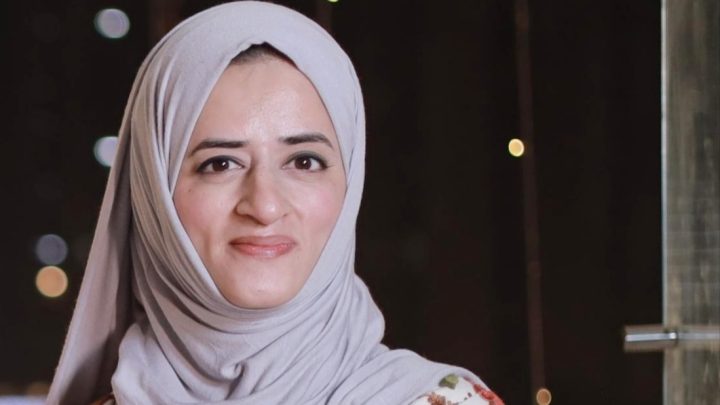
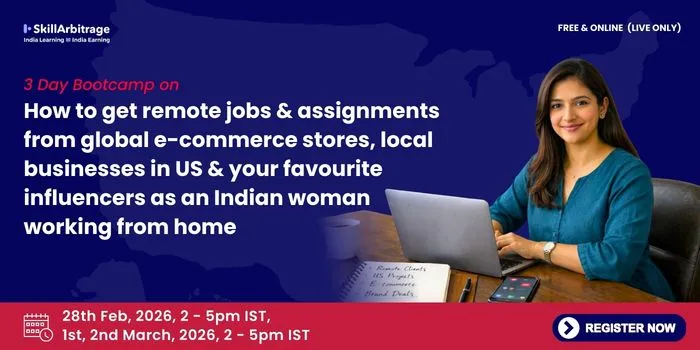
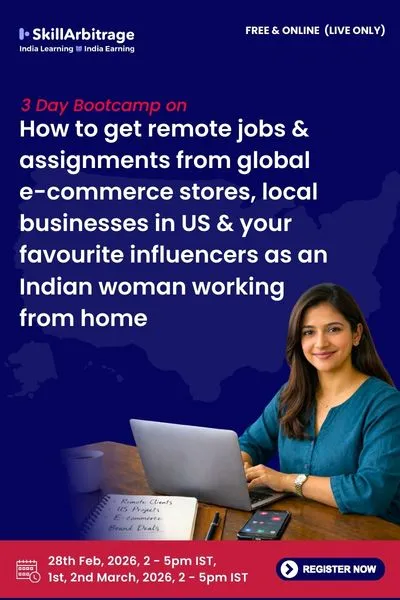

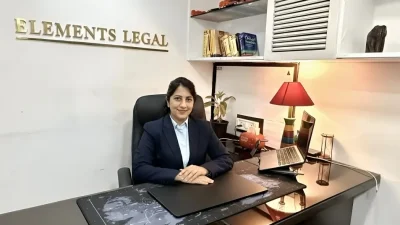


No comments yet
Be the first to share your thoughts about this interview.